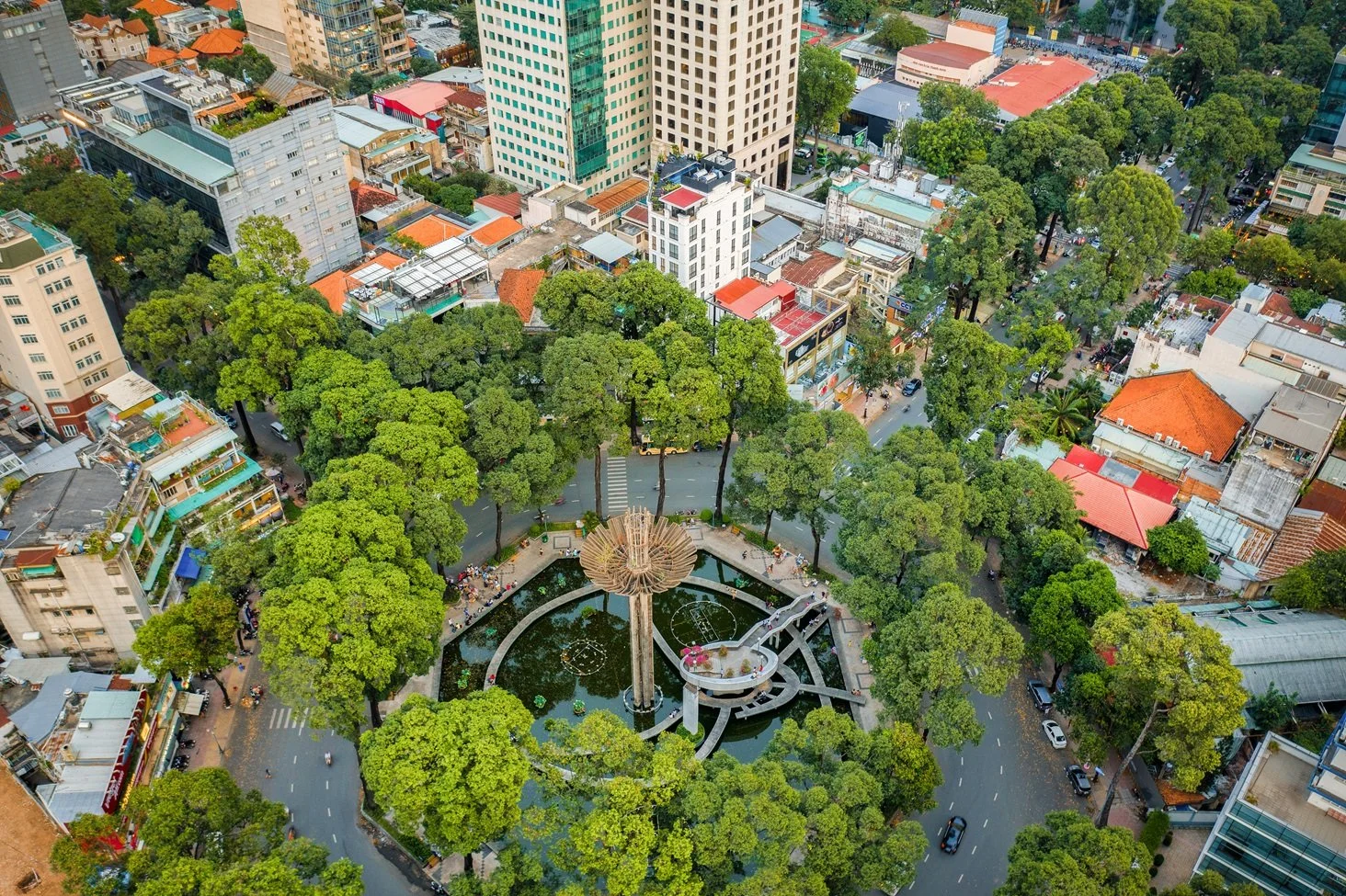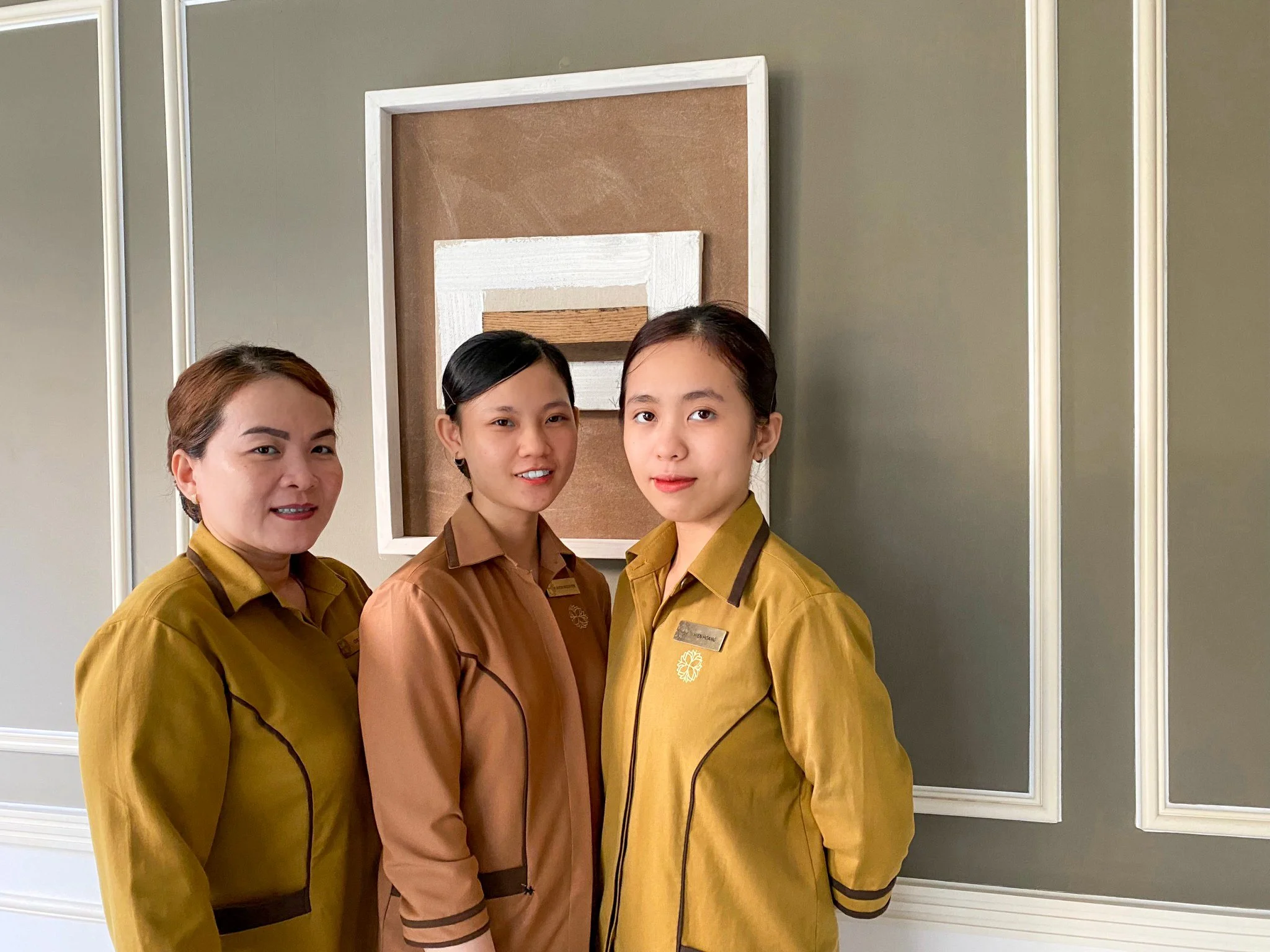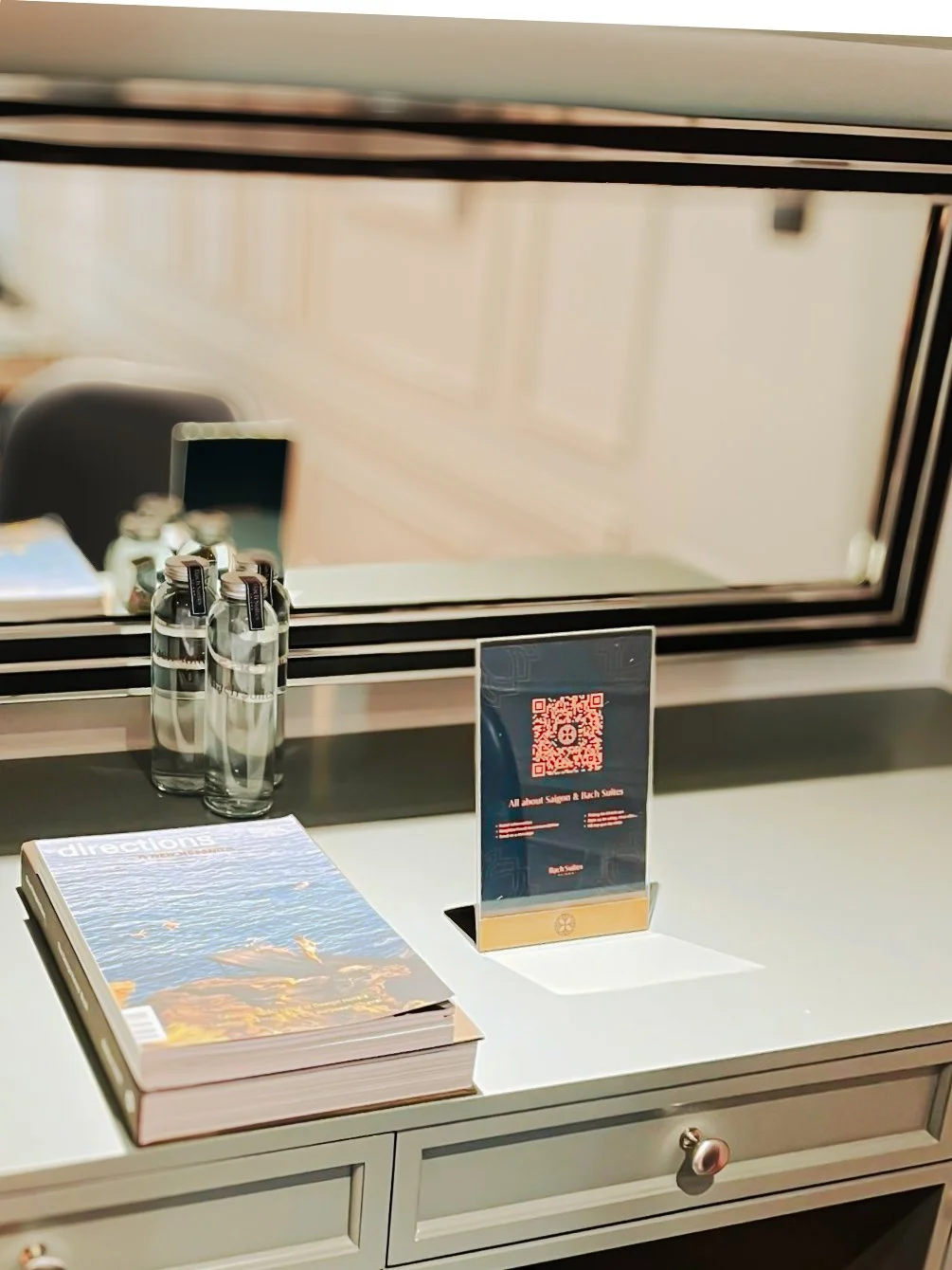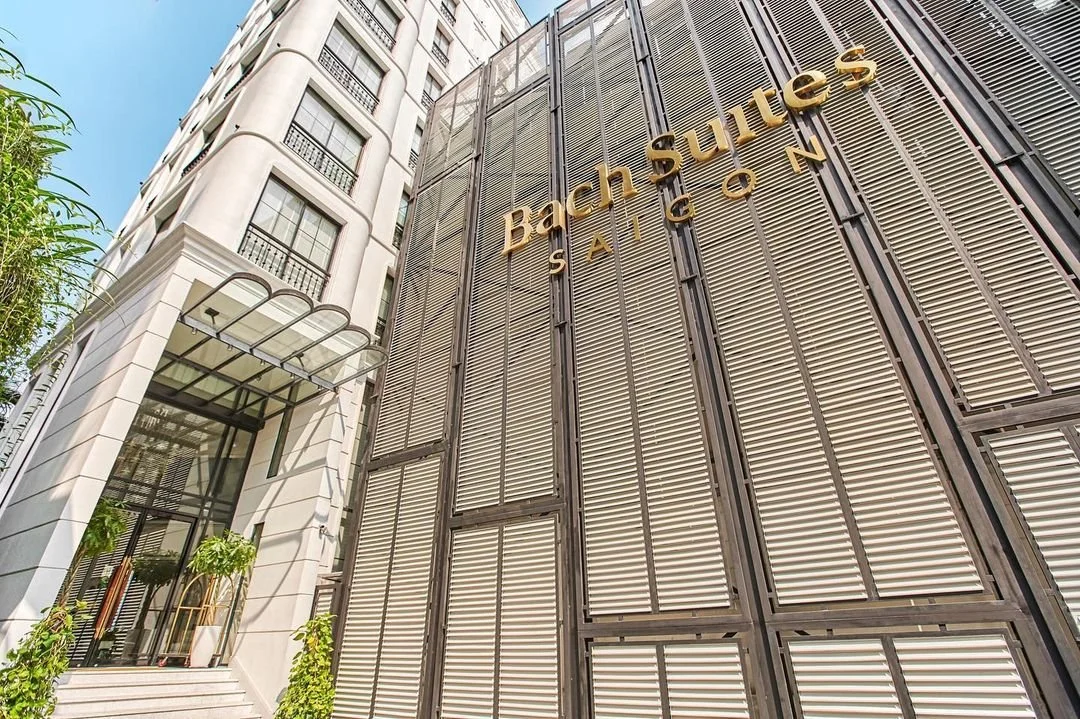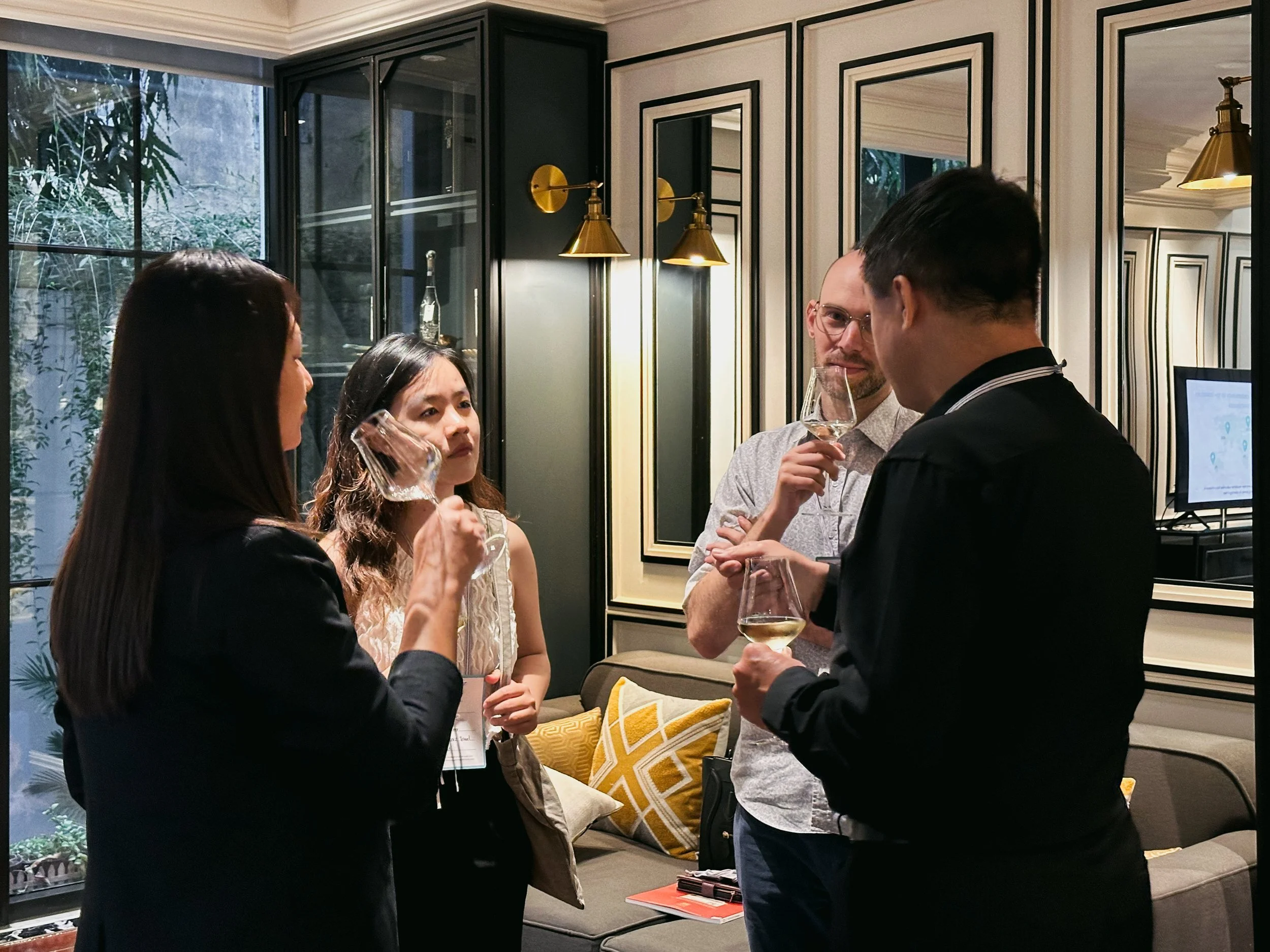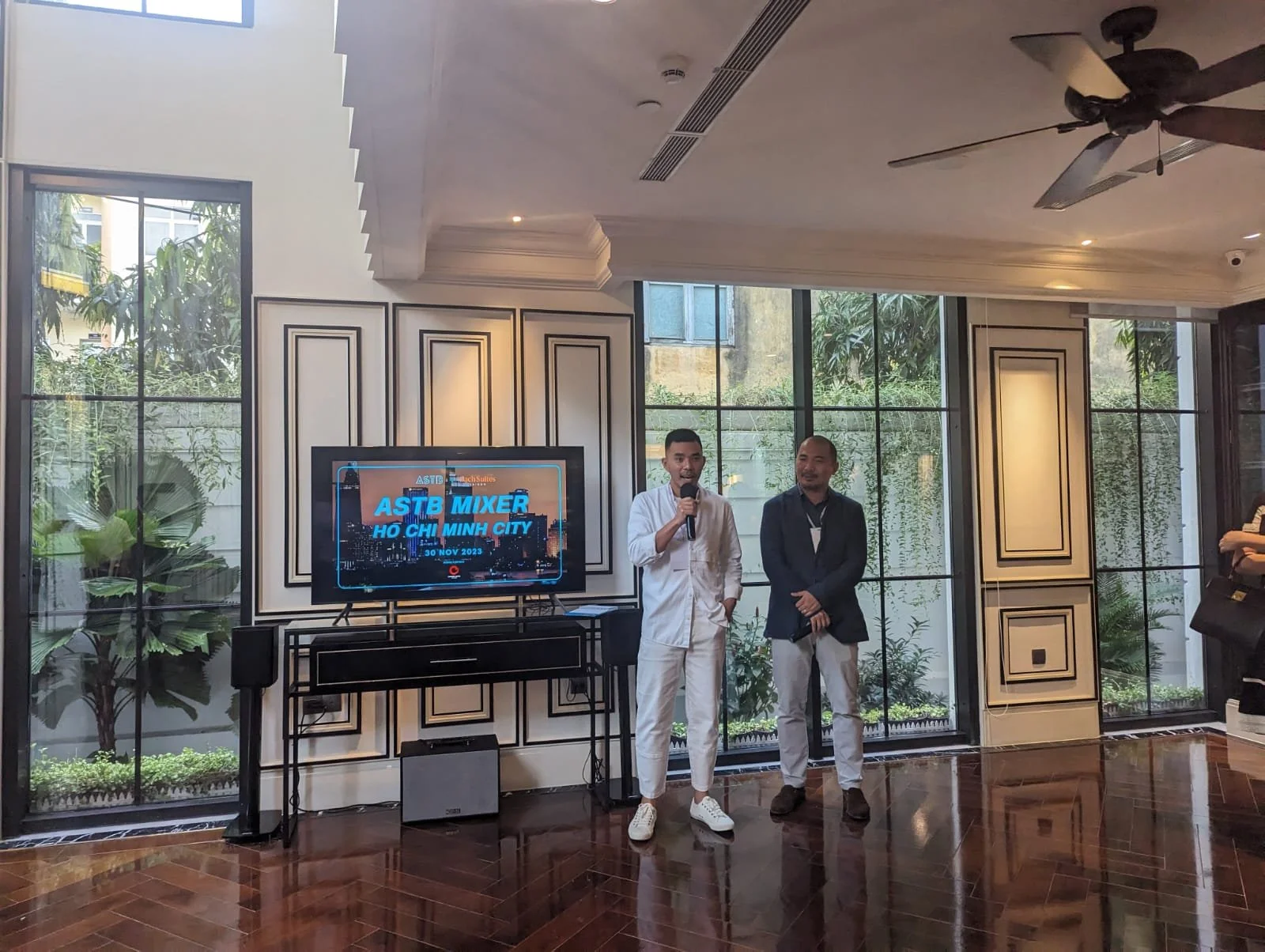Navigating Sustainability in Vietnam's Hospitality & Travel Industry: Key Takeaways from AST Forum in Ho Chi Minh City
As the sun set over the skyline of Ho Chi Minh City, Bach Suites Saigon welcomed travel and hospitality professionals for the Asia Sustainable Travel (AST) Forum. Far from being just a networking event, the forum focused on sustainable travel. Industry experts and newcomers came together, driven by curiosity and a shared commitment to sustainability.
This article highlights the key discussions and takeaways from an evening dedicated to shaping a more sustainable future for Vietnam’s travel industry.
1. Balancing Luxury and Sustainability
How can luxury and sustainability coexist, especially in a culture where progress is often associated with abundance?
Buffet breakfast, a staple in luxury hospitality, unfortunately generates a substantial amount of food waste.
Bach Suites Saigon has adopted a different approach. Hugo Thanh Huynh, Director of Hotel Operations at Travel Neutral Hospitality, the hotel management company overseeing Bach Suites Saigon, acknowledges the challenge but believes it's all about communication and setting the right expectations. The hotel positions itself as eco-responsible and emphasizes its commitment to reducing food waste.
In addition to communication, Bach Suites Saigon also focuses on the quality of its food. They take pride in sourcing 90% of their food ingredients locally, thereby supporting local farmers and reducing carbon emissions from transporting food. This approach allows them to offer their guests fresh, high-quality food ingredients and deliver the ‘comfort and luxury’ they expect from a (conventionally rated) 4-star hotel while staying true to their sustainability commitments.
Hugo points out that many discerning travelers understand and appreciate these efforts. Hence, it's not just about offering a sustainable choice but also about communicating and sharing with guests why these choices matter.
2. Harnessing the Power of Local Sourcing and Building Strong Supplier Relationships
One of the significant strategies that Travel Neutral Collective, the B2B travel management company Hugo Thanh Huynh co-founded, demonstrates its commitment to local sourcing.
They aim to retain at least 80% of tourism revenue within Vietnam, an initiative designed to prevent 'economic leakage'. This phenomenon often occurs when multinational companies transfer their profits back to their headquarter countries, resulting in fewer financial benefits for the local economy.
To counteract this, Travel Neutral Collective partners with local suppliers, ensuring they are paid directly and fairly for their goods and services.
This practice supports the local economy and promotes strong, direct relationships with suppliers. The goal is to create and project a sense of pride and equity within the Vietnamese tourism industry.
3. Cultivating an Inclusive and Respectful Work Environment
The hospitality industry moves quickly and comes with many challenges. Despite this, Travel Neutral Hospitality is committed to creating a welcoming and inclusive workplace that prioritizes attitude above experience.
Retaining staff became a significant challenge for many hospitality businesses after COVID-19. However, Hugo's company has taken a different approach. They believe in the potential of young, untrained individuals with a positive attitude. They invest heavily in internal training, offering encouragement and the resources necessary to develop their skills.
One notable success story is a team member who had no prior experience in hospitality. With the right encouragement and training, she has excelled in her role. This example illustrates the company’s commitment to developing its staff and creating a respectful and safe environment where employees can confidently express themselves.
The hope is that this kind of inclusive and respectful work environment becomes more widespread across the industry. By prioritizing attitude and character over experience during the recruitment process, and investing in comprehensive training, companies can foster a positive work culture that benefits themselves, their employees, and guests.
4. Implementing Low-Cost, High-Impact, and Replicable Solutions
Businesses can implement strategies that are cost-effective, impactful, and easy to replicate.
For example, Bach Suites Saigon closely monitors its breakfast service by tracking occupancy rates and guest preferences. This approach helps minimize waste while ensuring guests enjoy a more tailored experience.
Another impactful change Bach Suites Saigon has implemented is transitioning to a paperless operation. They have made significant cost savings by eliminating the need to reprint directories or other materials annually or biannually. The adoption of QR codes throughout the hotel has been key in this transition, providing an easy and efficient way for guests to access information.
5. Evaluating Sustainable Travel Packages: Affordability vs Fairness?
A question often asked in the travel industry is whether sustainable travel packages are cheap or expensive.
However, Hugo argues that the terms 'cheap' and 'expensive' are relative and subjective. What is considered cheap for one person might be expensive for another. Instead, he believes the focus should be on fairness.
If travel packages consider the people involved, their contributions, and the aim for equitable redistribution, then the cost can still be affordable.
However, Hugo cautions against unsustainable practices, like offering $30 flight tickets. He argues that such offers embody the race to the bottom, making it impossible for companies to achieve zero carbon emissions within the next decade. Therefore, the emphasis should be on fairness and sustainability rather than merely focusing on price.
Photos by: Bach Suites Saigon
6. Balancing Optimization and Customer Care
Layoffs and restructuring are unfortunate realities in challenging times. As businesses struggle to stay afloat, difficult decisions often affect customer service.
Striking the right balance between staying operational and delivering quality service is particularly challenging in the travel industry, where strong service is essential. It has become increasingly important to streamline processes while still prioritizing customer care.
However, when layoffs occur, there's an inevitable trade-off.
So, how can businesses balance this precarious situation?
Hugo suggests that the decision largely depends on the size and structure of the business. International groups with fixed numbers may find it harder to make adjustments. However, smaller companies have the advantage of being more adaptable and considerate in their decisions.
Several ways can be taken to achieve optimization, ranging from simple initiatives like reducing food waste and improving lighting efficiency to more significant changes such as transitioning to renewable energy sources and adopting electric transportation fleets. Regardless of their scale, these changes can result in substantial cost savings in the long run.
However, it requires the entire team's dedication and understanding of why these changes are necessary.
Hugo emphasizes that the economic situation of each company plays a crucial role in these decisions.
Therefore, there isn't a one-size-fits-all answer to this problem.
7. Staying Positive and Eco-conscious Amid Challenges
Jeremy Tran, co-founder of Asia Sustainable Travel, concludes the conversation by reminding everyone that this first AST Forum in Ho Chi Minh City is just the beginning.
"We’ll do more of this in the coming months and years because as long as we’re here, we have to continue this fight. We have to do our part in being green, eco-conscious, and responsible citizens."
He points out that when we say "save the planet," we should remember that it's us who need saving. The planet has survived catastrophic events in the past and healed itself. It's our survival that's at stake.
Jeremy encourages everyone to remain positive, optimistic, and focused on the task at hand.
The journey to a sustainable future may be challenging, but with concerted effort and dedication, it is achievable.
All photos by Bach Suites Saigon
TL; DR:
The AST Forum in Ho Chi Minh City shed light on crucial aspects of sustainability in the travel and hospitality industry, reiterating the significance of a balanced approach between luxury and eco-consciousness.
The importance of local sourcing and nurturing robust supplier relationships was underlined, alongside the necessity of fostering an inclusive and respectful work environment.
Participants learned about the effectiveness of low-cost, high-impact solutions. Bach Suites exemplified this with its waste reduction and paperless operations.
The discussion around travel packages emphasized fairness over sheer affordability, urging a rethink of practices that may hinder carbon neutrality goals.
Balancing optimization and customer service during these challenging times was also tackled, and the critical role of business size and structure in decision-making was recognized.
Finally, the event evoked a sense of collective responsibility and optimism for a sustainable future. The gathering served as a reminder that while the path might be steep, each step taken is a stride towards preserving our home planet for ourselves and future generations.


